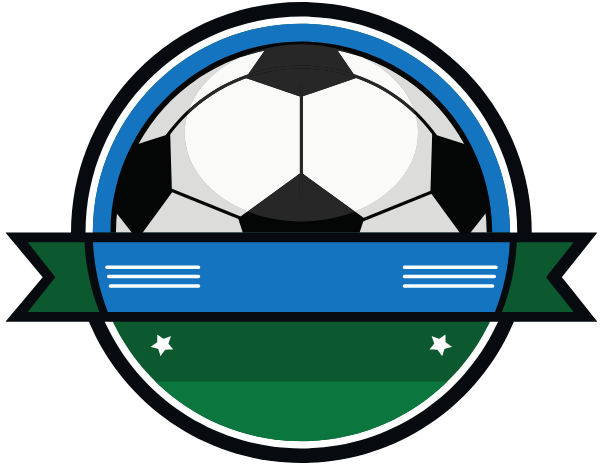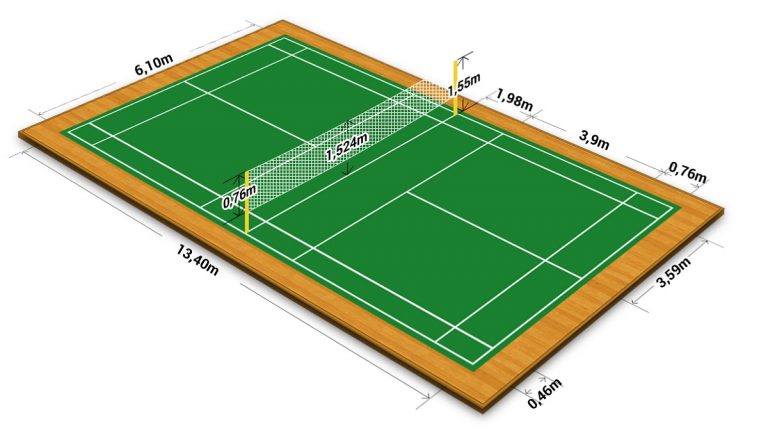General Rules of Esports
As you enter the world of competitive gaming, you'll need to familiarize yourself with the general rules of esports. Each game has its unique rules and regulations, so understanding these is crucial to staying ahead of the competition. You'll also need to adopt a code of conduct that respects your opponents and maintains a level of respect, even in the heat of competition. Penalties for misconduct and cheating can be severe, so knowing the rules and upholding a sporting attitude is imperative. As you navigate the world of esports, you'll discover more nuances to success – and the first step is understanding these foundational rules.
Game-Specific Rules and Regulations

In competitive esports, you'll find that each game has its own unique set of rules and regulations, which are essential to understanding the game's competitive landscape. These rules dictate how the game is played, and it's vital to familiarize yourself with them to stay ahead of the competition. For instance, in games like League of Legends, you'll need to understand the different Game Modes, such as Summoner's Rift or Twisted Treeline, each with its own objectives and strategies. Additionally, you'll need to stay up-to-date with Patch Notes, which introduce balance changes, new content, and bug fixes that can substantially impact gameplay. By understanding these rules and regulations, you'll be better equipped to navigate the competitive landscape and make informed decisions during gameplay. It's not just about mastering your skills; it's about understanding the game's intricacies and adapting to changes as they arise.
Code of Conduct and Ethics
As you enter the world of competitive esports, you'll quickly realize that respecting your opponents is vital. This means adhering to fair play expectations, such as refraining from toxic behavior, like harassment or cheating. By doing so, you'll help maintain a positive and inclusive environment, which is essential for a healthy esports community.
Respect for Opponents
You're expected to maintain a level of respect towards your opponents, even in the heat of competition. This fundamental aspect of esports is rooted in a sportsmanship mindset, where you acknowledge your opponents' skills and efforts. Recognizing that your opponents are not just rivals, but also fellow gamers who share the same passion and dedication is vital.
As you engage in competitive matches, developing opponent empathy is vital. Put yourself in their shoes and understand their perspective. Remember that they're also fighting to win, just like you. By adopting this mindset, you'll be more likely to maintain a respectful attitude, even in the face of defeat or victory.
Respect for opponents extends beyond the game itself. It encompasses communication, both in-game and out. Avoid using derogatory language, harassment, or insults, as these can create a toxic environment. Instead, focus on constructive communication that promotes healthy competition and mutual respect. By embracing respect for opponents, you'll contribute to a positive and uplifting esports community that celebrates fair play and good sportsmanship.
Fair Play Expectations
Establishing a clear code of conduct and ethics is essential in esports, outlining the expectations for fair play and sportsmanship that all players, teams, and organizers must adhere to. As a participant in the esports community, you're expected to uphold a sporting attitude, demonstrating respect, fairness, and integrity in all interactions. This includes complying with the rules and regulations of each game, as well as adhering to moral obligations such as honesty, transparency, and accountability.
You're expected to maintain a professional demeanor, refraining from cheating, harassment, and other forms of toxic behavior that can undermine the integrity of the game. By doing so, you'll help create a positive and inclusive environment that fosters healthy competition and promotes a culture of respect and sportsmanship. Remember, your actions reflect not only on yourself, but also on the broader esports community. By embracing these fair play expectations, you'll contribute to a more enjoyable and rewarding experience for all participants.
Penalties for Misconduct and Cheating

In the high-stakes world of competitive gaming, integrity is paramount, and penalties for misconduct and cheating serve as a necessary deterrent to maintain a level playing field. As a competitor, you need to understand the consequences of your actions. Cheating, in particular, is a serious offense that can lead to severe penalties, including disqualification, forfeiture of prizes, and even a lifetime ban from competitions.
The severity of the consequence depends on the nature and frequency of the infraction. Repeated offenders, for instance, can expect harsher penalties than first-time offenders. The goal of these penalties is not to punish, but to serve as cheating deterrents, ensuring a fair and level playing field for all competitors. Remember, you're not just representing yourself, but also your team and the esports community as a whole. So, maintaining the highest standards of sportsmanship and integrity in every competition is crucial. By doing so, you contribute to a positive and respectful gaming environment that values fair play and excellence.
Team and Player Eligibility Criteria
To participate in esports competitions, teams and players must meet specific eligibility criteria, which vary depending on the tournament or league, but typically include requirements such as age, residency, and amateur or professional status.
As a player, you'll need to ensure you meet these criteria to participate in your desired competition. Here are some key eligibility factors to consider:
- Age Restrictions: You must be at least 16 years old to participate in most esports competitions, but some tournaments may have higher age requirements.
- Roster Management: Teams must manage their rosters carefully, as changes can affect eligibility and may require approval from tournament organizers.
- Residency Requirements: Some tournaments may require players to be residents of a specific country or region to participate.
- Amateur or Professional Status: Depending on the tournament, players may need to declare their amateur or professional status, which can impact their eligibility.
Event and Tournament Guidelines

Your entry into an esports tournament is contingent on understanding the event and tournament guidelines, which outline the rules, schedules, and formatting for each competition. These guidelines facilitate that all participants are on the same page, allowing for a smooth and enjoyable experience.
When it comes to tournament format, you'll need to familiarize yourself with the specific structure of the competition. This includes the type of tournament, number of teams or players, and the format of matches. For instance, a single-elimination tournament may feature a best-of-three match format, while a round-robin tournament might have a points system to determine the winner.
Event scheduling is also vital, as it outlines the timeline for the tournament, including the start and end dates, match schedules, and any breaks in between. You should also be aware of the check-in and registration processes, as well as the rules for late arrivals or no-shows. By understanding these guidelines, you'll be well-prepared for a successful and enjoyable tournament experience.
Dispute Resolution and Appeals Process
As you navigate the world of esports, you'll likely encounter disputes that need resolving. When a dispute arises, you'll need to know how to file a dispute and understand the roles of the appeal committee. In this section, we'll walk you through the process, including the resolution timeframes, so you're prepared to handle any issues that come up.
Filing a Dispute Process
You'll typically initiate the filing a dispute process when you're unhappy with a ruling or decision made by the tournament organizers or administrators. This process is in place to guarantee that all parties involved are treated fairly and that any disputes are resolved in a timely and efficient manner.
When filing a dispute, you'll need to provide sufficient evidence to support your claim. This can include:
- Game footage or screenshots that demonstrate the issue or incident in question.
- Chat logs or communication records that show any relevant conversations or agreements.
- Witness statements from other players or team members who can corroborate your account.
- Rules or documentation that support your argument or claim.
It's essential to provide thorough and accurate evidence to confirm that your dispute is taken seriously and handled efficiently. If your dispute is deemed valid, it will be escalated to the next level of dispute resolution, where it will be reviewed and resolved by a designated appeals committee. Remember to carefully review the evidence requirements and dispute escalation process to guarantee that your dispute is handled fairly and efficiently.
Appeal Committee Roles
Once a dispute has been escalated, it's reviewed by the appeal committee, a panel of impartial experts responsible for resolving disputes in a fair and timely manner. As you navigate the appeal process, understanding the roles within the committee is vital to a smooth resolution. The appeal committee consists of a Chairperson, Committee Members, and a Secretary. The Chairperson leads the committee, oversees fair proceedings, and makes final decisions. Committee Members are experts in esports and dispute resolution, providing objective opinions and insights. The Secretary is responsible for administrative tasks, such as scheduling and documentation. The committee's dynamics are pivotal, as they work together to review evidence, discuss the case, and make informed decisions. Each role is defined to guarantee a thorough and unbiased review of your dispute. By grasping the appeal committee's roles, you can feel confident that your dispute will be resolved fairly and efficiently.
Resolution Timeframes
Your dispute's resolution timeframe depends on the complexity of the case and the appeal committee's workload, with most disputes typically resolved within 7-14 business days. However, more complex cases may take longer, and you'll be notified of any delays.
Here's what you can expect during the resolution process:
- Initial Review: The appeal committee reviews your case and gathers necessary information.
- Incident Response: The committee investigates the incident, gathering evidence and statements from all parties involved.
- Penalty Windows: The committee determines the appropriate penalty, considering factors like the severity of the infraction and any prior offenses.
- Final Decision: The committee reaches a final decision, which will be communicated to you and all relevant parties.
Frequently Asked Questions
Can I Participate in Multiple Teams at Once?
Can you really juggle multiple allegiances without dropping the ball? Probably not. You'll likely face contract conflicts and compromised team loyalty, so it's best to focus on one team at a time to maintain a clear conscience and avoid divided loyalties.
What Is the Minimum Age for Esports Competition?
As you consider competing in esports, you'll need to know that most tournaments have a minimum age requirement of 13, with some allowing younger participants through Youth Development programs, adhering to age restrictions for a safer environment.
How Do I Report Suspicious In-Game Behavior?
"If you suspect someone's using cheating tactics, report it to the game's support team or tournament organizers. Fair play is key, so don't hesitate to speak up and help maintain a clean competitive environment."
Can I Use a Temporary Substitute Player?
You're wondering if you can bring in a temp player – the answer is yes, under certain circumstances. Roster flexibility allows for emergency replacements, ensuring the show goes on, but be sure to follow the specific guidelines.
Are Esports Events Open to Spectators?
You're wondering if esports events are open to spectators? Yes, they typically are! Event Security provides a safe environment, and many events are also streamed online, making it possible for you to tune in via Online Streaming.






